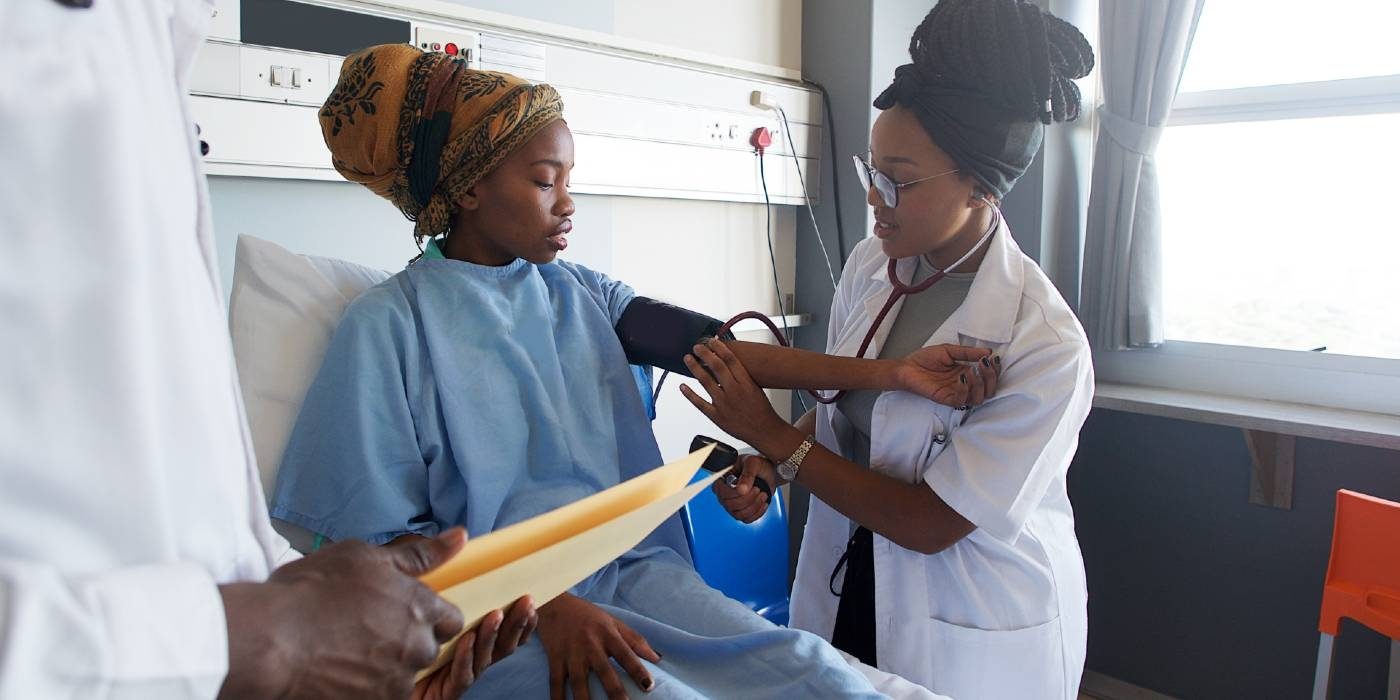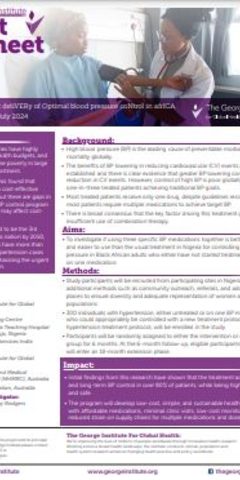
VERONICA: deliVERy of Optimal blood pressure coNtrol in afrICA
Background
High blood pressure (BP) is the leading cause of preventable morbidity and mortality globally. The benefits of BP lowering in reducing cardiovascular (CV) events are well established and there is clear evidence that greater BP lowering confers a greater reduction in CV events. However, control of high BP is poor globally, with only one in three treated patients achieving traditional BP goals. Most treated patients receive only monotherapy, despite guidelines recognising that most patients require multiple medications to achieve target BP.
Over the recent decades, the burden of non-communicable diseases (NCD)s in Sub-Saharan Africa (SSA) has rapidly increased and high BP is the leading cause and increase continues, the burden of NCDs will soon surpass that of “traditional” communicable, maternal, neonatal and nutritional diseases. Nigeria, with a population of 207 million, is anticipated to become the 3rd most populous country in 2050. This portends a huge increase in the number of people with hypertension projected to be >215 million by 2030.
In African countries, BP control is a cost-effective intervention, but there are gaps in evidence on BP control program elements that may affect cost-effectiveness, such as a lack of standardised treatment protocols. Introducing strategies that improve BP control and focus on cost saving and scalability are therefore essential.
Aims
To investigate if using three specific BP medications together is better, safer and easier to use than the usual treatment in Nigeria for controlling high blood pressure in Black African adults who either have not started treatment or are only on one medication
Research Methodology
- Study participants will be recruited from participating sites in Nigeria, with additional methods such as community outreach, referrals, and ads in public places to ensure diversity and adequate representation of women and underserved populations.
- 300 individuals with hypertension, either untreated or on one BP medication, and who could appropriately be controlled with a new treatment protocol or Nigeria hypertension treatment protocol, will be enrolled in the study.
- Participants will be randomly assigned to either the intervention or comparator group for 6 months. At the 6-month follow-up, eligible participants who consent will enter an 18-month extension phase.
Current status
Randomisation phase – Recruitment is completed and participants completed randomisation phase are evaluating for extension phase
Extension phase- Recruitment is ongoing
Lead
Anthony Rodgers
Partners
- The George Institute for Global Health
- Local Coordinating Centre
- University of Abuja Teaching Hospital Gwagwalada, Abuja, Nigeria
- George Institute Services India
Supporters
- The George Institute for Global Health
- National Health and Medical Research Council (NHMRC), Australia
- The Heart Foundation, Australia


